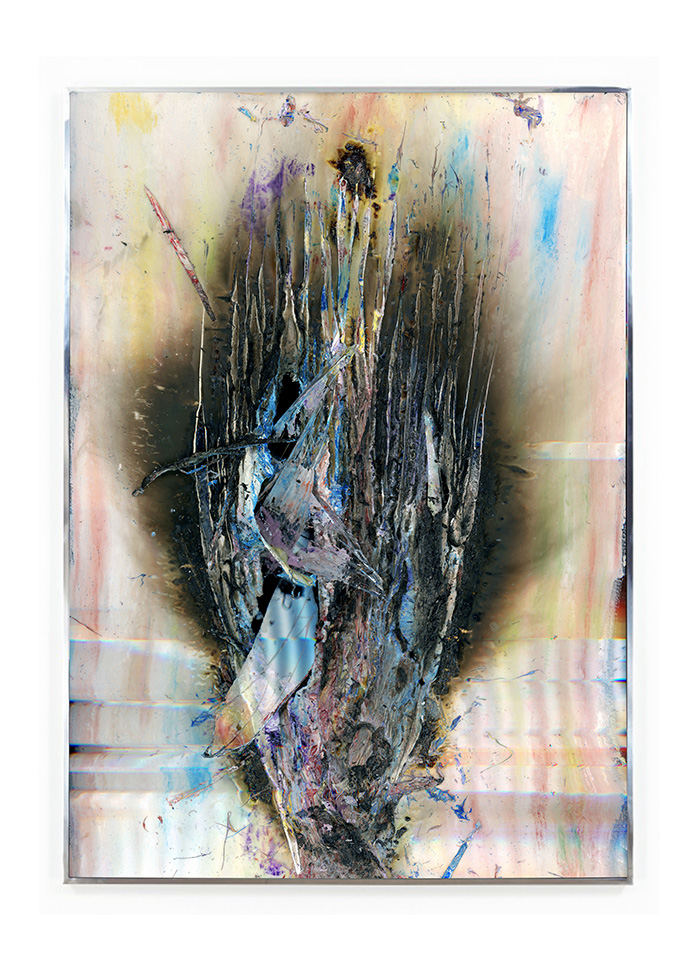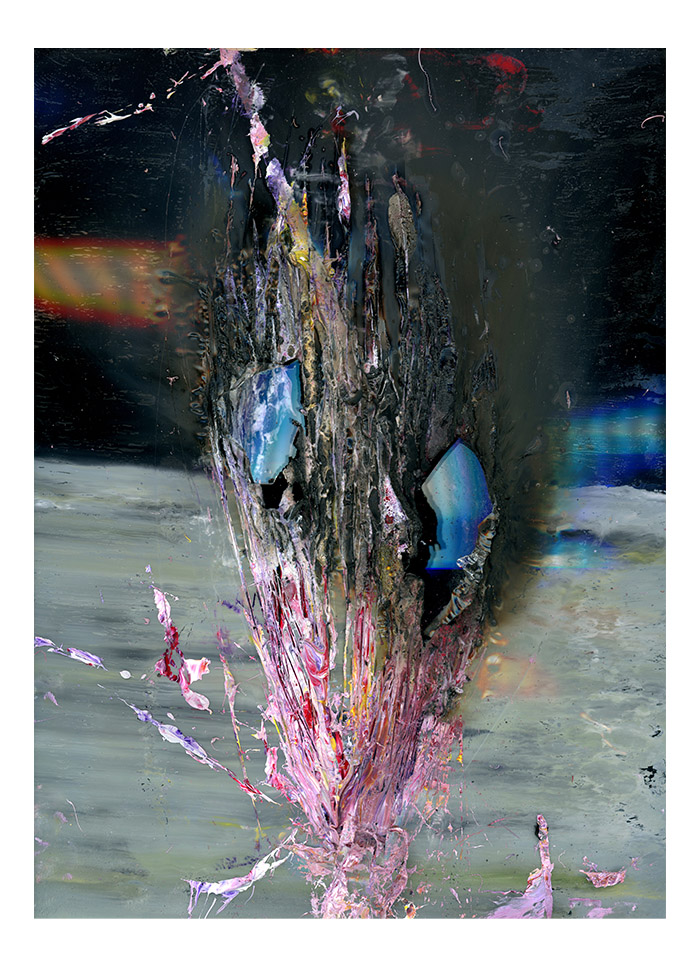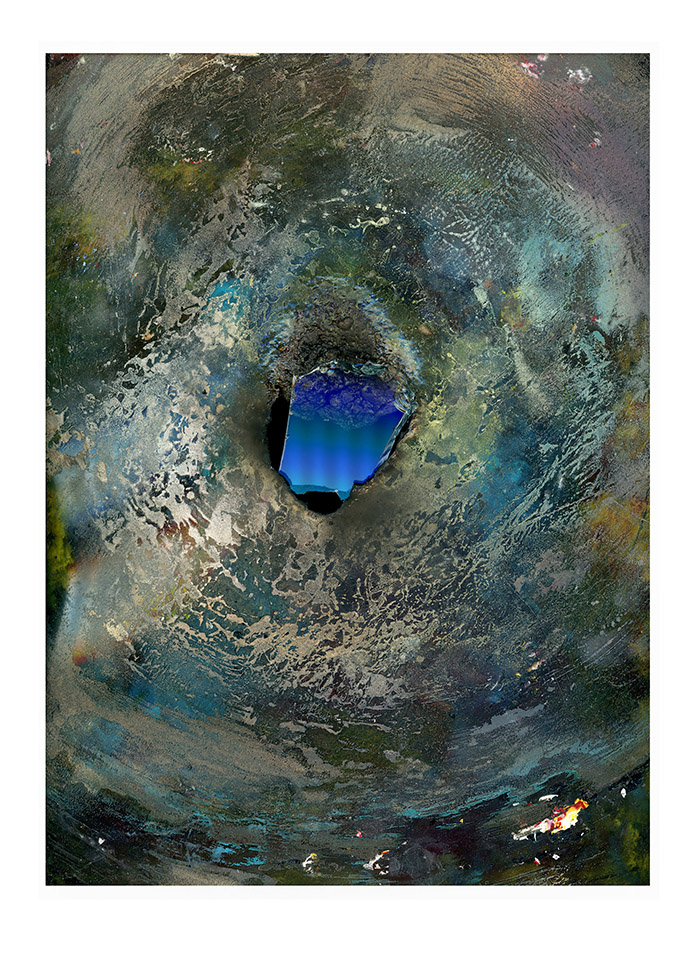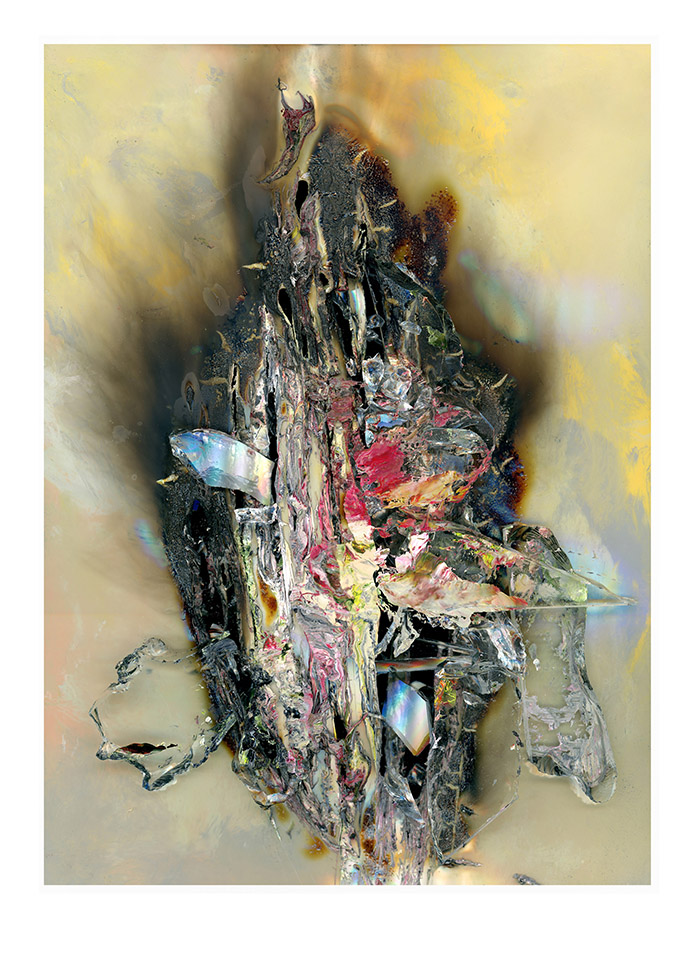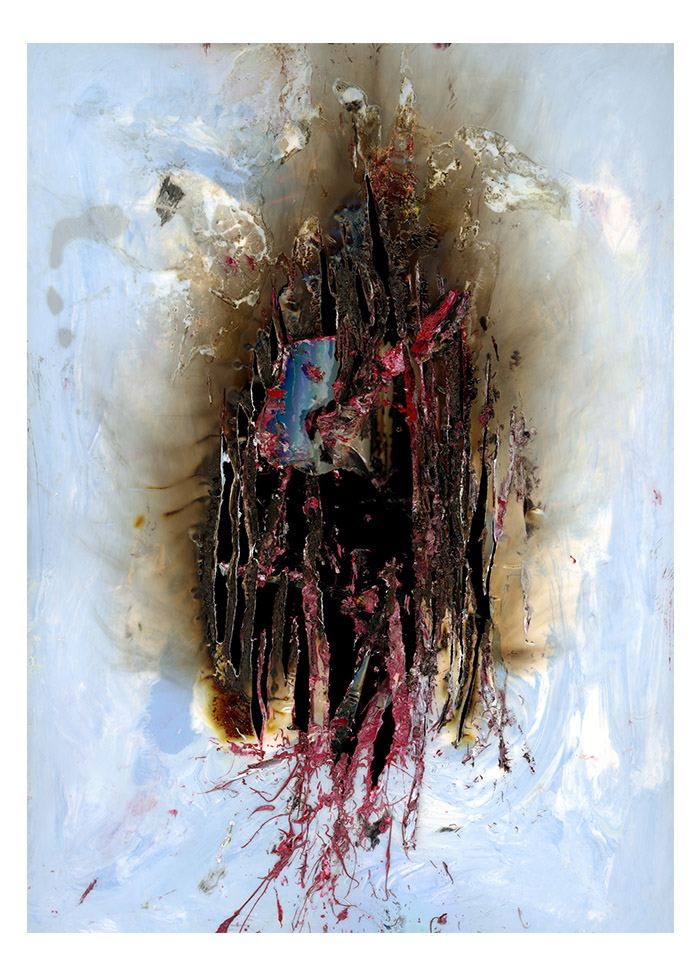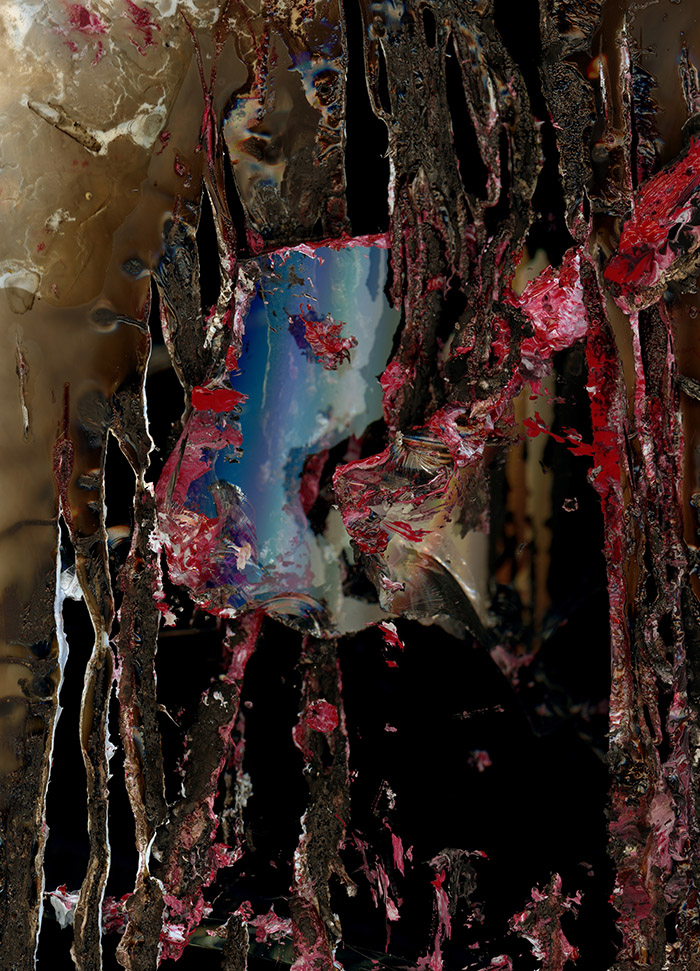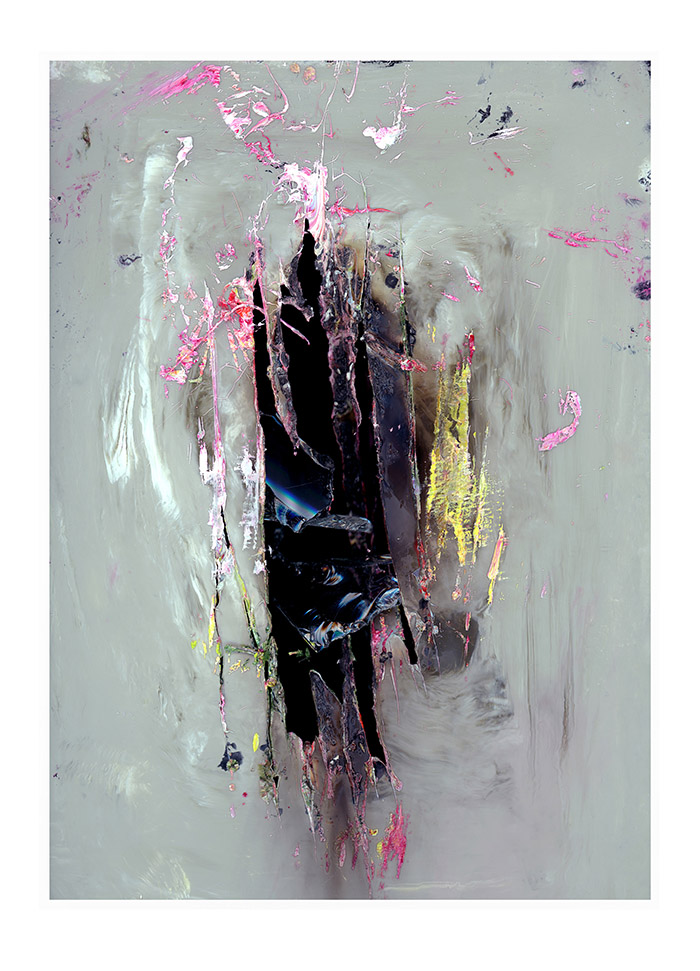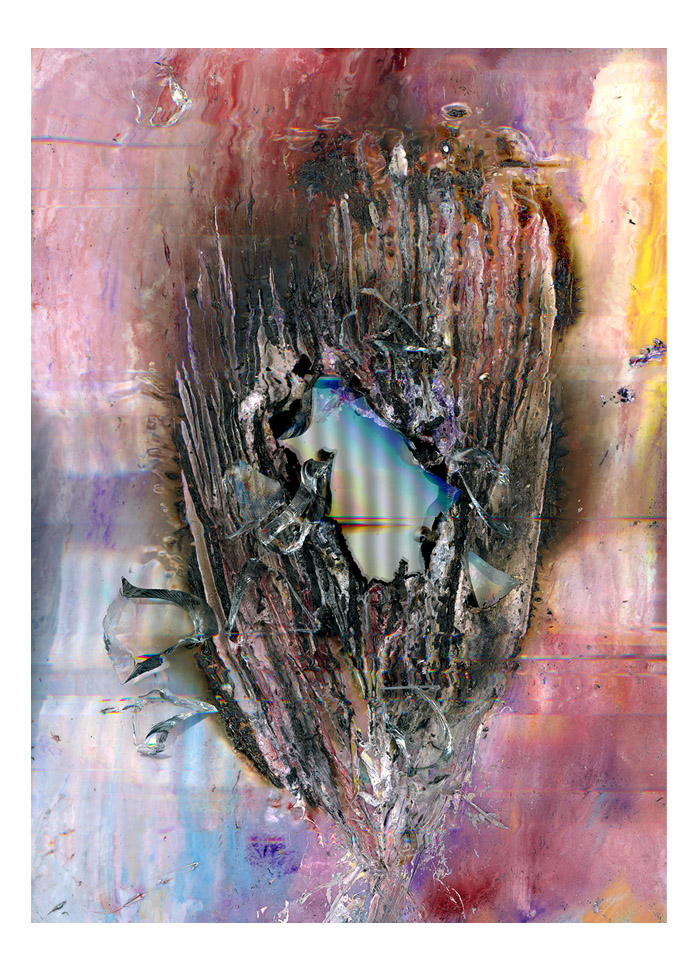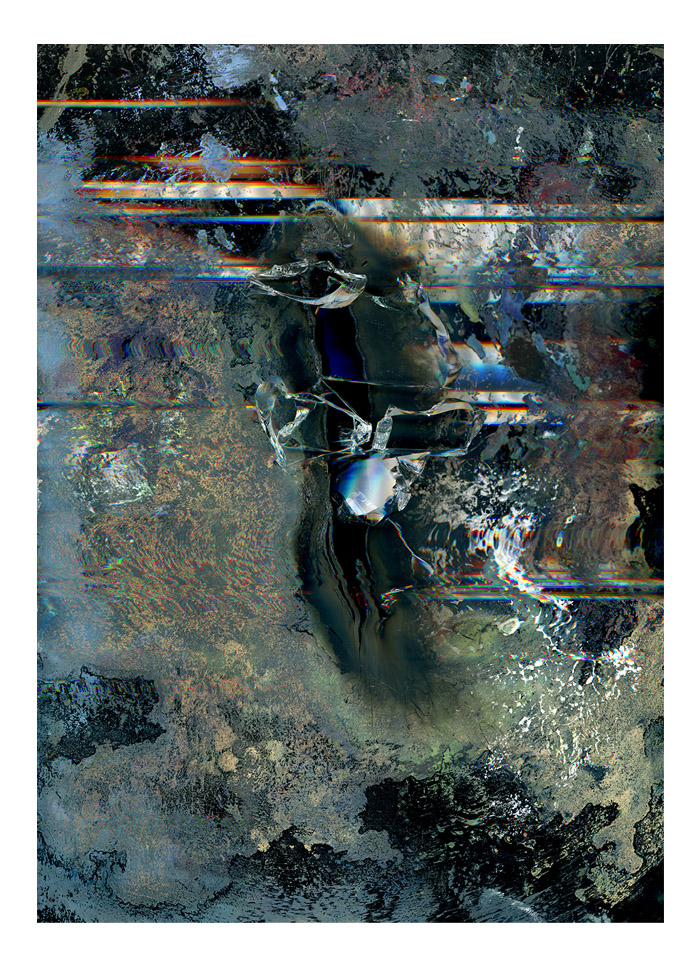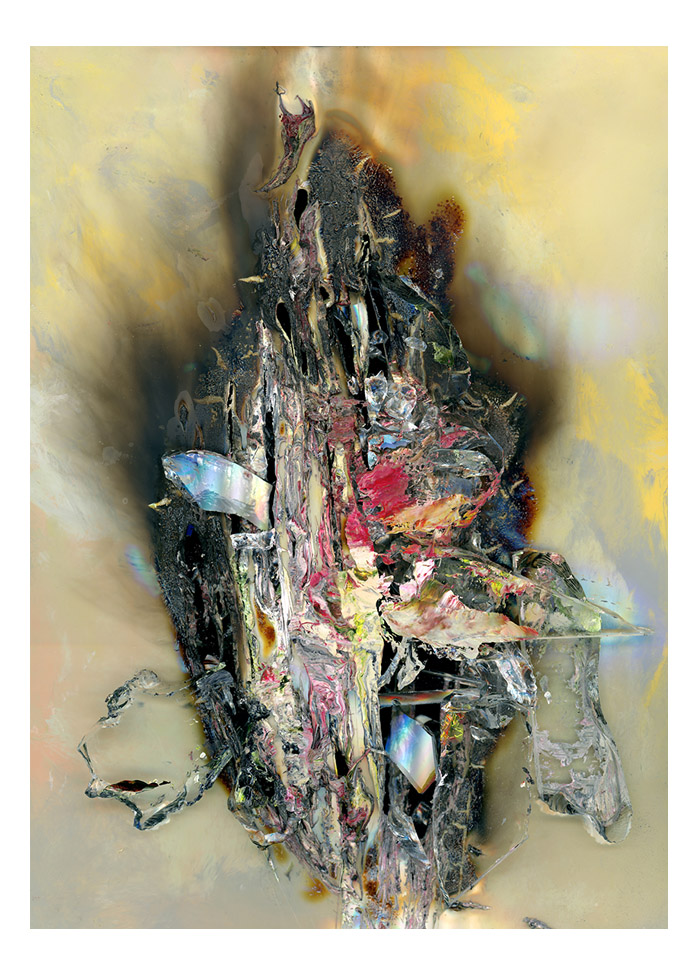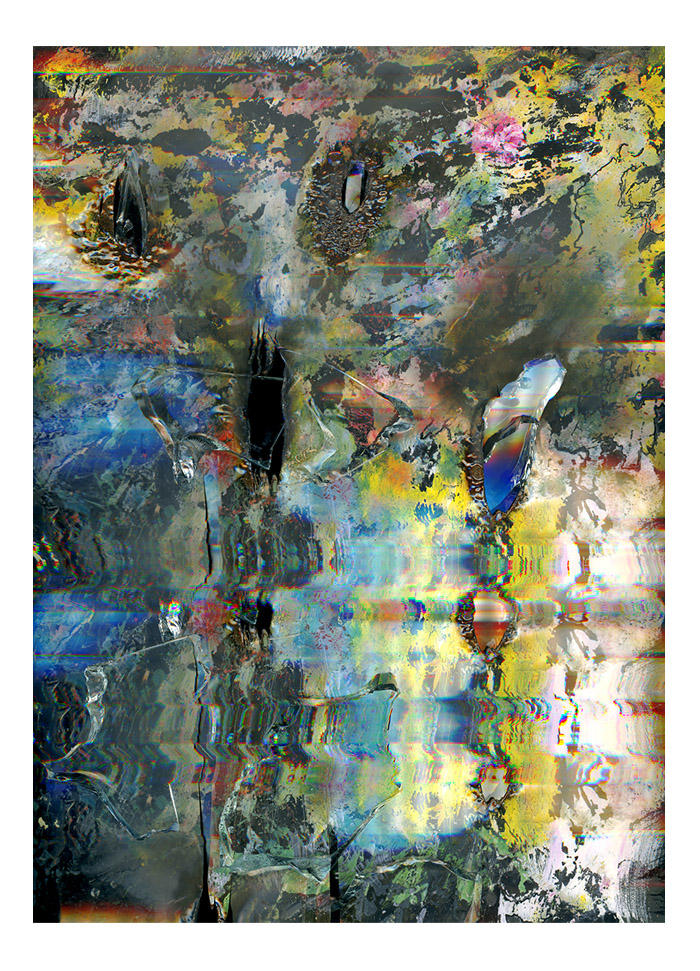Mind Game
心灵游戏系列表达了是两种空间交织的状态,一种是物理上的关于绘画的平面空间与摄影的立体空间。两种不同的光(油画颜料的光与玻璃反射的光)被扫描仪在同一时间捕捉而形成的具有两种不同空间的图像。另一种是心灵上的关于消极情绪与积极情绪的关系。希腊哲学家巴门尼德公元前六世纪提出的问题,他看到世界分成对立的两半:光明、黑暗;优雅、粗俗;温暖、寒冷;存在、非存在。他把其中一半称为积极的(光明,优雅,温暖,存在),另一半自然是消极的。我认为这种两极的区分是简单的,是不符合复杂的日常状态。心灵游戏中的背景被烧着的油画背景与反射的玻璃块象征着消极情绪与积极情绪的纠缠与转化,如放纵与克制,热烈与冷静,恶与善等等。这些看似对立的情绪互相渗透,互相激战,就如同一场心灵的游戏,谁是胜利者它完全取决于观看人的心。
It is a series of two spaces mingling with each other which are a physically planar space of painting and a stereoscopic space of photography. Two different lights (a light of paint and a light reflected from the glass) form in two different images in two different spaces as a result of being captured by scanner in the same time. The other space is the mental relationship between positive and negative feeling. Parmenides, a Greek philosopher, put forward a question in the sixth century B.C. that was he saw the world splitting in two separate part, bright and dark; elegant and vulgar; warm and cold; existent and inexistent. He thought one half is positive (bright, elegant, warm and existent), and the other is negative. I think these two distinctions are simple and incompatible with the complicated daily life. The burning painting in the background of Mind Game and the reflected glass symbolize the entanglement and transformation of negative and positive feeling, such as indulgent and restrained feelings, passionate and dispassionate feelings, vicious and virtuous feelings. These feelings seem to be contradictory but penetrate and resist with each other, like a mind game and wanting to be a winner completely depends on audiences’ mind.
